Career
BN Presents Naija Doctorate & Proud: Chinyere Ozumba Has an Animal & Environmental Biology Degree from University of Port Harcourt
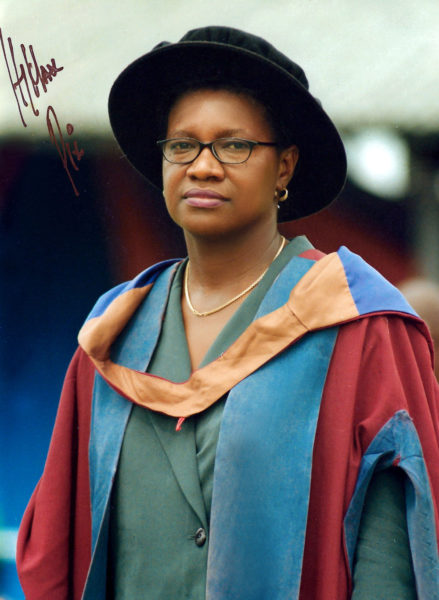
In July 2018, the BellaNaija Features team decided to take a closer look at academia in Nigeria. We recognize that the current state of our educational system leaves a lot to be desired. However, in spite of all the difficulties, Nigerians still go through the system and manage to excel in their field of studies. Even more commendable are Nigerians who go over and beyond graduate level, by attempting and completing post graduate degrees. It is for this reason that we decided to specially recognize and celebrate people who completed their PhDs in Nigeria. Naija Doctorate & Proud is a celebration of Nigerians who have obtained their doctorate degrees from Nigerian universities. To follow this series, bookmark this page
It is no mean feat to obtain a Doctorate any where in the world, and to do it in Nigeria means you rock!
It’s our pleasure to share Chinyere Ozumba‘s story. Chinyere has a doctorate degree in Animal and Environmental Biology from the University of Port Harcourt.
She decided to get a PhD because of a promise to her late father that she’d get a doctorate, because her education had been put on pause when she got married. She decided to go back to school to fulfil her promise to her father. As someone who was raised on a university campus, she knew that a doctorate was the pinnacle of educational pursuits.
Having achieved this peak, Chinyere advises current doctoral candidates, “You have to be research oriented and have an eye for detail and digging deeper to do a solid research.”
We hope you are as inspired by Chinyere’s story as we are.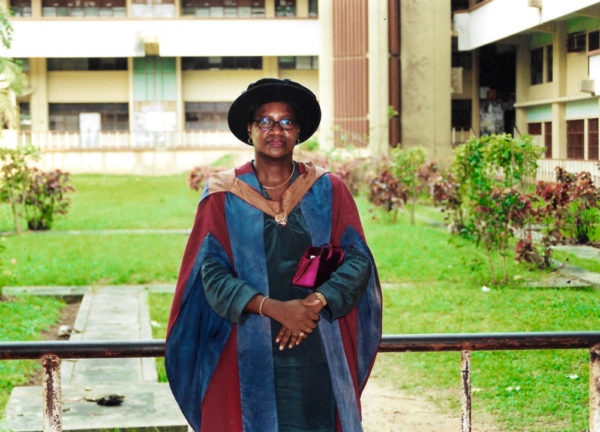
***
Chinyere, what inspired your decision to specialize in Animal and Environmental Biology?
I have always loved animals and the outdoors and the whole science behind them intrigued me.
Now the big question, why did you do your PhD at the University of Port Harcourt?
I was born and grew up in a University community and it holds fond memories for me. Also, I had a good full time job and a young family at the time. I didn’t get approval for a study leave abroad from my company and it was going to disorganize my family, if I traveled out. So I decided to do a part time study here while retaining my job.
Finding the right balance between your dreams and your current reality is crucial. So, was it very expensive to get the degree in Nigeria?
The cost was not too much – but that was long ago (1998 – 2001). It was about N30,000 per year in school and other sundry fees, in addition to the cost of research materials and transportation. My research involved long stays out in the field which I could not do myself and so I had a field assistant – (a lady that just completed her NYSC ) . I also paid her a monthly stipend. So, about N120,000 for fees, N120,000 stipend to my field assistant and about N100, 000 for research materials and transportation. Total – about N340,000.

Thank you for sharing. Tell us about the journey to your degree.
There was a Professor from the science faculty of UniPort that was on Sabbatical in my company and I mooted the idea to him. He advised me on the availability of the Professors that could supervise my project and gave me a contact. Based on the info he gave me, I already had an idea of the topic I could work on and thought through it before taking a trip to UniPort to meet with the Professor.
Thereafter, I applied and requested for my transcript from my former school and when the application was accepted , I agreed a date with my Prof to present my proposal to the rest of the department staff. I enlisted the help of a Lab staff for the lab work and my field assistant for the field work.
I had to continually meet and discuss progress with my Prof (this necessitated several road day trips from Warri to Port Harcourt). In parallel, I was doing my literature review and working on the preliminary chapters (Introduction, Literature review and Methodology)of my thesis.
When my Prof agreed that I had enough data, I started writing the results and discussions. When the thesis was ready and had been reviewed by my supervisor (Prof), I had to engage all the other staff members and discuss the thesis with them before the external examination was scheduled.
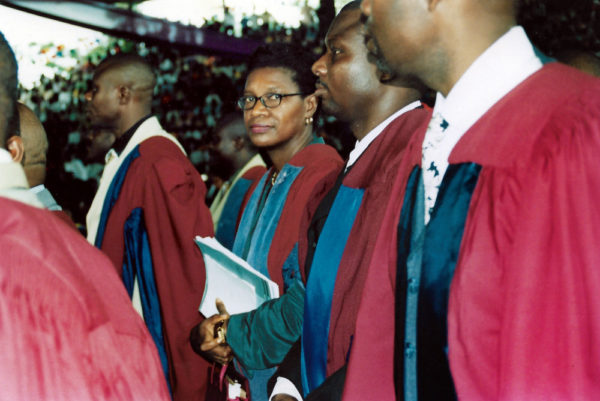
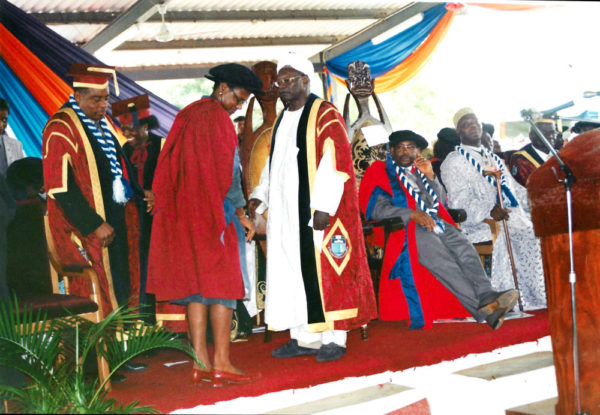 The facilities and research materials including books required for the research were most times not available and the student has to provide their own. The lecturers and Professors were quite willing to help, but could only do what they could. There is also a lot of politics and hierarchical (power) tussles amongst the lecturers which the student could unknowingly walk, into that could delay or even disrupt their program.
The facilities and research materials including books required for the research were most times not available and the student has to provide their own. The lecturers and Professors were quite willing to help, but could only do what they could. There is also a lot of politics and hierarchical (power) tussles amongst the lecturers which the student could unknowingly walk, into that could delay or even disrupt their program.
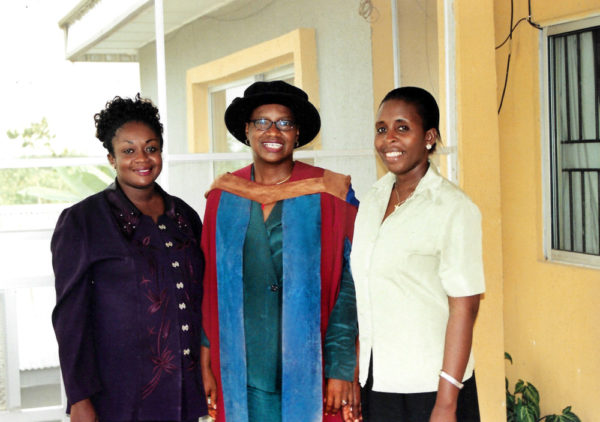
Wow, these political bottlenecks seem to be a recurring issue with doctoral candidates in Nigeria. In retrospect, what are some of the things you would have done differently
I would have gone to a different school where there is a Professor of entomology to supervise me in my area. Because my Prof was a parasitologist, I had to do a lot of modifications to my project, with the resultant effort and loss of time.
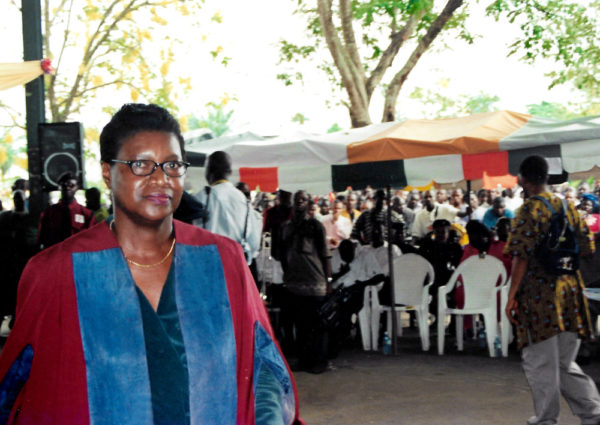 Makes sense. So, right now, you have a PhD; what are the advantages?
Makes sense. So, right now, you have a PhD; what are the advantages?
In the job I do, as a Biodiversity specialist, I interface a lot with several experts and the academia.
My Doctorate degree has been very useful in exchanging info and my working relationship with the consultants and experts I work with.
It’s nice to see that you’re currently working in your area of specialization. So, what did you learn overall from the experience?
The Nigerian Universities need to be upgraded to become citadels of learning. Currently, they are not conducive for learning and that rubs off on the quality of graduates they produce.
This is true. We hope someone in the government is reading this. What advice would you give people in the Nigerian academic stratosphere on how to improve the quality of the education?
We all, (Lecturers, Admin staff, students), have to determine to improve on the quality of our education. I am hesitant to talk of funding because even what ‘little’ is provided is not applied there, and ends up in private pockets. In other climes, it’s not everyone that goes to the University, so we should improve on our screening process and get more students on merit. We also have to provide the necessary facilities. The universities should look to alternative funding and generating revenue e.g. through the Alumni and voluntary donations as with other countries.
Thank you so much for sharing your story, Chinyere. We really appreciate you.
BellaNaijarians, if you enjoyed reading this, please share with your friends. If you obtained your PhD from a Nigerian University, we’d love to share your story. Please click HERE to find out how to reach us.



















